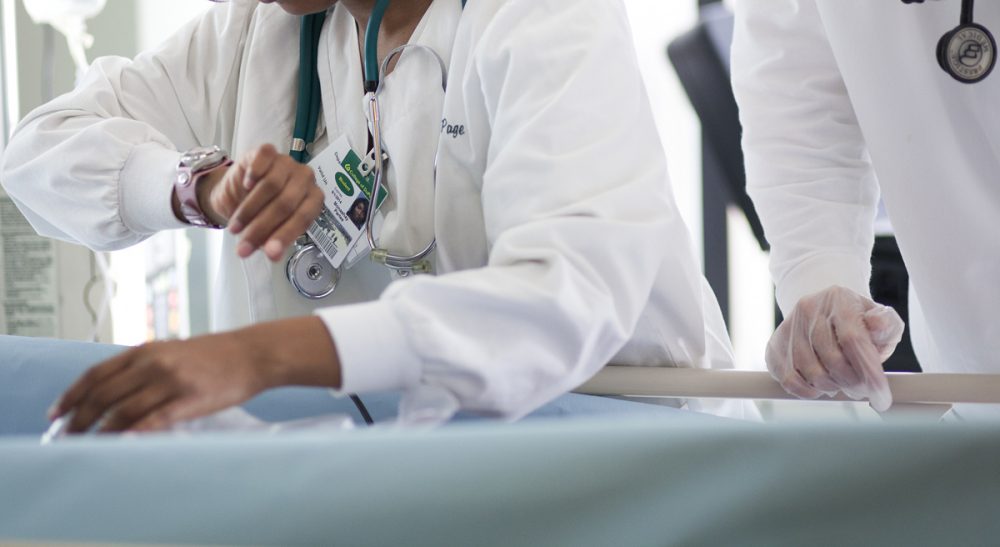Advertisement
A Cautionary Tale: How Unconscious Biases Can Deliver Flawed Medical Judgments

The highly publicized saga of the family whose hospital visit resulted in the lost custody of their daughter should concern anyone navigating the complexities of the health care system. It is also a lesson in the way in which unconscious biases can impact the decision-making process of health care professionals and produce terrifying results. This story struck a nerve on a professional and personal level.
The reported facts involve a teenaged girl who was under the care of a specialist at Tufts Medical Center for a metabolic disorder. The specialist referred her to a gastroenterologist at Children’s Hospital familiar with her medical challenges to investigate whether her latest symptoms could be attributed to problems beyond her disorder. At Children’s, however, a dizzying series of immediate reactions and decisions followed, with tragic consequences. The gastroenterologist did not get to see her, the parents were accused of causing their daughter’s medical symptoms, the hospital convinced the state’s child protection agency to take emergency custody, the girl was involuntarily confined for months in a locked psychiatric ward, and the family’s access for visitation was severely restricted. Nearly a year later, the matter is still under court jurisdiction.
At the heart of these tragic circumstances is a glimpse into how medical judgments can be based on minimal evidence and the exclusion of key information.
At the heart of these tragic circumstances is a glimpse into how medical judgments can be based on minimal evidence and the exclusion of key information. The case not only reveals a series of systemic biases within the medical profession, but also the burden on families to be “good” and “likeable” in moments of deep vulnerability.
I train professionals on the ways in which unconscious biases can affect their judgments, focusing on decades of research demonstrating how the brain reaches conclusions based on instantaneous impressions and reactions, outpacing our seemingly more rational conscious thought process. In that role, I describe studies demonstrating how doctors who rely on mental shortcuts that are based simply on past experiences can make flawed diagnoses. Additional research in the field of neuroscience reveals how egocentric biases — the overestimation of one’s own abilities — can impair judgment. These unconscious biases can have even greater negative consequences when those who best know the patients — their families and their own health care providers — are excluded from the decision-making process.
According to the press coverage, Dr. Korson at Tufts Medical Center acted on the knowledge that not every symptom a patient exhibits is related to an underlying diagnosis and sought the advice of another specialist familiar with his patient. At Children’s Hospital, the family was not permitted to see that specialist and Dr. Korson was reportedly excluded from any involvement in the subsequent decisions regarding his patient.
The decision to exclude doctors most familiar with the patient’s medical circumstances may demonstrate another unconscious bias at work: confirmatory bias. Make a judgment, and then exclude information contrary to that opinion so the decision is wholly grounded in selected facts that match one’s initial impression.
Navigating possible systemic errors in judgment is particularly terrifying when an illness presents an unusual cluster of symptoms and the potential diagnosis is a rare disorder. For parents, it feels like being trapped in a vortex of fear that is excruciating. Only the empathetic support of the medical team involved can provide a lifeline.
Advertisement
We have lived in that vortex, and we are lucky. Our medical team understood that the successful treatment of our son’s rare disorder involved the family in every respect. Our doctor saw parents as an integral part of the patient’s overall care and often a key component of the diagnostic puzzle.
Our doctor also happens to be Mark Korson, the same Tufts Medical Center physician who referred his patient to Children’s. Personally, the story struck a nerve because Dr. Korson saved our son’s life many years ago (ironically, when he was at Children’s, where the emergency room did everything right to hone in on a rare diagnosis). Over the years, we have experienced Dr. Korson’s special combination of expertise and compassion, and his respect for the family’s ability to be partners in managing medical issues.
The response to 'difficult' parents, however, requires reasoned judgment and collaboration, not dismissal of their concerns or, as in this case, more drastic reactions.
According to the reports, this story may have involved difficult family dynamics. There is no doubt that parents find it hard to be on their best behavior when facing a medical condition that is not commonly understood. Ask any parent of a hospitalized child about the frustrations of repeatedly explaining to doctors and nurses the unusual aspects of care required in treating a patient whose condition is unfamiliar. And parents can be downright impossible in the emergency room when medical professionals with limited knowledge of their child’s circumstances are slow to provide the medication that is required.
Can parents be emotional in these circumstances? You bet. And some may be far worse than others. The response to “difficult” parents, however, requires reasoned judgment and collaboration, not dismissal of their concerns or, as in this case, more drastic reactions.
The circumstances do not diminish Children’s standing as a world-class hospital, but it does serve as a cautionary tale. The hope now is that this sad situation can offer a teaching moment for the medical profession.
Related: